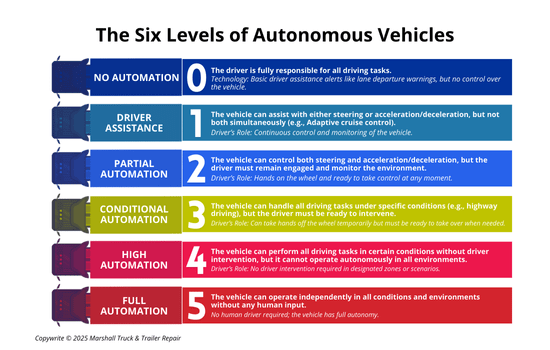The trucking industry is evolving rapidly, and one of the biggest questions on everyone’s mind is whether autonomous trucks will replace human drivers’ jobs. While advancements in self-driving technology continue, the future of trucking is more complex than a simple shift to automation.
Autonomous Trucks and the Workforce: Navigating the Impact on Jobs
The rise of autonomous trucks is one of the most talked-about developments in the transportation industry. With rapid technological advancements reshaping the trucking landscape, questions about the role of human drivers remain at the forefront. While automation presents exciting possibilities, it also raises concerns about its effect on employment. Let’s explore what this means for truck drivers, businesses, and the industry.
The Rise of Autonomous Trucking

Self-driving technology has made significant progress in recent years, with companies like Tesla, Waymo, and Embark developing autonomous trucking solutions. These trucks are designed to improve efficiency, reduce fuel consumption, and enhance safety. However, fully autonomous vehicles (Level 5 automation) that can operate without any human intervention are still years away from widespread adoption.
Will Autonomous Trucks Replace Human Drivers?
The short answer: not anytime soon.
While automation will change certain aspects of trucking, full driverless operations are still limited by technological, regulatory, and logistical challenges. Here’s why truckers are still essential:
-
Human Judgment & Adaptability: Self-driving trucks struggle with complex real-world scenarios, such as unexpected road conditions, severe weather, or mechanical failures. Human drivers bring critical thinking and problem-solving skills that automation cannot replicate.
-
First-Mile & Last-Mile Logistics: Autonomous trucks may be more effective for long-haul routes on highways, but urban and delivery routes require human oversight.
-
Regulatory & Safety Hurdles: Governments are cautious about approving fully autonomous trucks for widespread use. Strict regulations and safety concerns mean human supervision remains necessary.
How Will Jobs in Trucking Change?
Rather than eliminating jobs, automation is likely to transform trucking roles. Here’s how:
-
Hybrid Roles: Truckers may shift to overseeing automated systems, similar to how pilots monitor autopilot functions in aircraft.
-
More Local & Specialized Jobs: As automation focuses on long-haul routes, local and regional trucking jobs may increase in demand.
-
Maintenance & Tech Opportunities: The rise of autonomous trucks will create demand for skilled technicians who can service and manage high-tech truck systems.
The Future of Trucking: A Balanced Approach
The industry is moving towards a hybrid model where automation enhances efficiency, but human expertise remains crucial. Truck drivers will continue to play a key role, particularly in areas requiring safety oversight, cargo management, and customer interaction.
